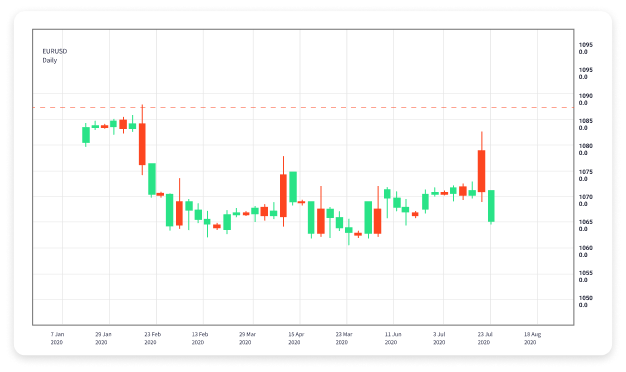Mastering Forex Trading The Importance of Practice
Posté le 3 novembre 2025 dans bating9 par Isidore Monzongoyi.

Understanding Forex Trading Practice
Forex trading is a dynamic and complex market that requires not only knowledge but also a significant amount of practice to master. forex trading practice Qatar Brokers provide tools and resources that are essential for traders who wish to improve their skills and strategies. In this article, we’ll explore the various aspects of forex trading practice, including the significance of simulation, different methods to practice, and how to continuously improve your trading performance.
The Importance of Practice in Forex Trading
Many new traders dive headfirst into the forex market without fully understanding the intricacies involved. Forex trading practice is crucial for several reasons:
- Risk Management: Understanding how to manage risk is vital in forex trading. Practicing allows traders to test their risk management strategies without the fear of real financial loss.
- Strategy Development: The forex market is highly volatile, and having a reliable trading strategy is essential. Practice gives traders the chance to develop and refine their strategies over time.
- Confidence Building: Trading can be psychologically taxing. Practicing builds confidence as traders become more familiar with market conditions and their own decision-making processes.
- Understanding Market Dynamics: The forex market operates 24/5 and is affected by numerous global factors. Practicing helps traders understand these dynamics better.
Effective Ways to Practice Forex Trading
There are several effective methods for practicing forex trading:
1. Demo Accounts
One of the most popular ways to practice forex trading is by opening a demo account with a broker. A demo account simulates real trading conditions but uses virtual money. This allows traders to execute trades without risking real capital. It’s an excellent way to familiarize oneself with the trading platform while experimenting with different strategies.
2. Trading Simulators
Trading simulators are software programs that mimic real trading environments. They often come with features such as market analysis, real-time data, and performance tracking. By using a simulator, traders can develop their skills and test their strategies in a controlled environment.
3. Paper Trading

While it may seem somewhat old-fashioned, paper trading is still a viable method for practicing trading. This involves manually recording trades on paper or in a spreadsheet as if you are trading in real-time. Although it lacks the advanced features of demo accounts and simulators, it helps in understanding the mechanics of trading closely.
4. Trading Competitions
Many brokers host trading competitions that allow traders to compete against one another using demo accounts. These competitions encourage traders to refine their skills and adopt effective strategies while striving for the prize. Engaging in competitive trading can give valuable experience and insights.
Developing a Structured Practice Plan
To maximize the benefits of practicing forex trading, it’s important to have a structured plan in place:
- Set Goals: Clearly define what you want to achieve during your practice sessions, whether it’s mastering a specific strategy or improving your risk management.
- Maintain a Trading Journal: Keeping a trading journal is vital for reflecting on your trades and making adjustments. Document your decisions, emotions, and outcomes to identify patterns over time.
- Analyze Your Results: Regularly review your trades and their outcomes to identify what works and what doesn’t. This analysis will guide your future practice sessions.
- Stay Educated: Continuously educate yourself on market analysis, trading strategies, and economic indicators. Participating in webinars or reading relevant literature can significantly contribute to your learning.
The Role of Backtesting in Forex Trading Practice
Backtesting involves testing a trading strategy using historical data to determine its viability. This method allows traders to assess the effectiveness of their strategies before risking real money. To backtest effectively:
- Select a strategy you want to test.
- Choose a historical dataset that reflects the market conditions relevant to your strategy.
- Run simulations to see how the strategy would have performed over time.
Backtesting not only helps in identifying potential performance but also boosts confidence in a trading strategy as it provides empirical evidence of its effectiveness.
Staying Disciplined During Practice
Discipline is key in forex trading. Here are some ways to stay disciplined during your practice sessions:
- Stick to your practice schedule and avoid skipping sessions.
- Follow your trading plan rigorously, treating the practice as if it were real trading.
- Avoid overleveraging thoughts or getting greedy during practice. Stick to your desired risk management rules.
Conclusion
Forex trading practice is a vital component of becoming a successful trader. It helps enhance risk management, builds confidence, and aids in the development of effective trading strategies. By utilizing demo accounts, trading simulators, and maintaining a structured practice plan, traders can significantly improve their skill set and psychological readiness for the challenges of the forex market. Remember that practice is not merely a phase; it’s a continuous journey that can lead to greater success in forex trading.
